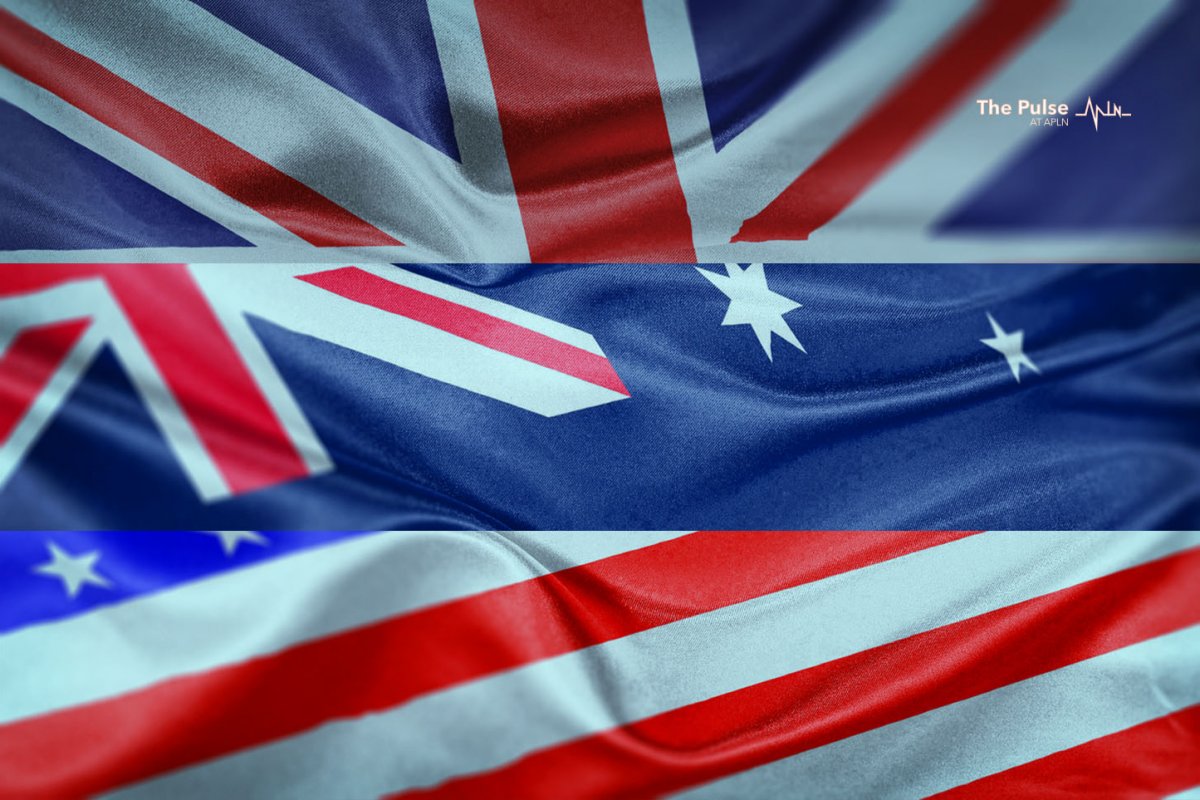On September 15, a trilateral security pact between the US, the UK and Australia (AUKUS), which has introduced a new geo-strategic dimension to the South Pacific politics and security, was established. Among other implications, which have been extensively covered by foreign policy analysts, an impact that AUKUS exerts on New Zealand deserves special attention.
For context, three points are worthy of note. First, this initiative demonstrates that the US policy in the Pacific Ocean, be it referred as the Asia-Pacific Region, the Indo-Pacific Region or whatever, focuses almost completely on the anti-China agenda and, by extension, aims to explore anti-China sentiments. Regrettably, the economic component of the US regional policy has been and remains a missing link. To date, the attempts made by the participants of Quad to develop a realistic plan of action aimed at strengthening economic ties across the vast area of the Pacific Ocean and the Indian Ocean have produced few practical results. With specific relevance to AUKUS, a very short time between its announcement and China’s request to accede to the Comprehensive and Progressive Trans-Pacific Partnership, which should be seen in synergy with the Belt and Road Initiative (BRI) and China’s policy towards the Regional Comprehensive Economic Partnership (RCEP) could hardly have been a coincidence. Although making predictions is a hardly enviable task, China is likely to expand its instruments to shape the Asia-Pacific economic milieu to its (China’s) best advantage. No matter how the CPTPP further develops, with or without China, the reputational implications for Beijing are broadly favorable, as, in contrast to Washington, it demonstrates its real, rather than declared adherence to the rule-based economic order and can substantiate it with adequate resources.
Second, the establishment of AUKUS has added to the politicization of the international milieu across the Pacific and the Indian Oceans. The ASEAN-led cooperative security system, presented by multilateral dialogue platforms the ASEAN Regional Forum (ARF), the ASEAN Defense Ministers Meeting Plus Eight (ADMM+8) and the East Asia Summit (EAS), is a case in point. Worryingly, its relevance has further decreased in the priorities of its participants, as the afore-mentioned multilateral venues fail to perform one of their core functions, namely, to harmonize relations between Asia-Pacific international actors. Arguably, after China’s negative response to the establishment of AUKUS, the task to coordinate discussions at the ARF, the ADMM+8 and the EAS has become much more challenging and demanding for the association, while its resources have diminished. The recent Quad Leaders Summit, at which a new level of the Quad institutionalization and more diversified directions of cooperation were outlined, will almost certainly further galvanize tensions between the Quad participants and China. Third, AUKUS has negative global implications since a blow to the global non-proliferation regime is evident. As C.Moloney put it, “Whether Australia leases, buys or builds nuclear-fuelled submarines, it will be the first non-nuclear state to do so”. In fact, Australia’s acquisition of such submarines makes it possible to use a loophole to the Non-Proliferation Treaty and use highly enriched uranium for developing its own nuclear weapons, by means of this creating a dangerous precedent. If so, global contradictions related to the nuclear non-proliferation will be extended to the South Pacific region, much to the disadvantage of its countries. Assessing the AUKUS aftereffects for New Zealand, a background perspective is necessary. As New Zealand is a major producer and exporter of agricultural commodities, it strongly depends upon multilateral trade initiatives. Also, since New Zealand lacks hard military power, a predictable international milieu in and around the South Pacific region is high in Wellington’s order of priority . A factor that deserves special attention relates to a high significance that New Zealand attaches to relations with China in the context of the Belt and Road Initiative.
New Zealand joined the Belt and Road Initiative in March 2017. Arguably, New Zealand is among China’s privileged partners, as the country has valuable strategic assets that potentially can be extended to the BRI. Of note is the Better Border Security Sentinel Plant Project aimed to strengthen biosecurity. In addition, New Zealand’s trade facilitation and customs clearance practices, specifically, Joint Electronic Verification systems and Mutual Recognition Arrangements, matter to China, as they can increase goods mobility along the BRI routes. Lastly, New Zealand is an ideal transportation hub for Chinese investment goods and projects, for instance, as a transit route from South Pacific to Latin America.
In contrast, relations between New Zealand and the United States have been strained since mid-1980s. Among the key contradictions, different approaches to the nuclear policy matter the most. In 1985, the Labor government, with the purpose to make New Zealand a nuclear free country, refused the entry of USS Buchanan, as Washington could not guarantee that the destroyer was not nuclear powered or nuclear armed. The next year, Washington suspended its military commitments to Wellington. Since then, in spite of Wellington Declaration and Washington Declaration on Defense Cooperation adopted in 2010 and 2012 respectively, ties between New Zealand and the US have been limited mostly to dealing with non-traditional security challenges in the South Pacific. Specifically, the two countries coordinate their policies in supporting the Pacific small island states to patrol their Exclusive Economic Zones, participating in HADR exercises, as well as making scientific research in the Antarctic (New Zealand provides the US with a support base at Christchurch).
Assessing the impact of the AUKUS on New Zealand, three main aftereffects seem likely. Firstly and most importantly, contradictions with Australia will hardly take much time to appear, since the nuclear-free stance is the cornerstone of New Zealand’s policy. Prime Minister Jacinda Ardern explicitly stated that “New Zealand’s position in relation to the prohibition of nuclear-powered vessels in our waters remains unchanged”. This scenario is all the more regrettable since New Zealand and Australia have a common origin as British colonies, are natural partners for reasons of geography and develop relations across many spheres, ranging from defense cooperation to initiatives of economic regionalism in and beyond the South Pacific region. The second implication is trade-related. As the US prioritizes the military-security component of its regional policy rather than offers its partners new trade initiatives, implications for New Zealand are negative. Wellington was disappointed at Washington’s withdrawal from the TPP under the Trump administration, as well as at the US’ shift to a more protectionist stance. As repeated escalations of Sino-US tensions, as AUKUS gains traction, seem likely, it will undermine the political circumstances in which economic exchanges take place, to the disadvantage of New Zealand as an export-dependent country.
Thirdly, New Zealand will have to reassess the core components of its strategy in the international arena. As Terence O’Brien noted, “New Zealand’s colonial inheritance and the international realities of a war-torn 20th century shaped our foreign policy. They nourished a particular New Zealand psychology of dependence on a small number of powerful but distant friends (first, Britain and then the United States.). Those countries provided both military protection and economic opportunity for us”. At present, this stance is quickly becoming inefficient and, by extension, incentivizes Wellington to make its complete revision. Unfortunately, to date the country has lacked both vision and instruments to cope with this task. In sum, ample evidence suggests that New Zealand’s core interests will be threatened by AUKUS. This scenario means a rise of disagreements between the South Pacific countries, which increases their vulnerability in the contemporary hard world.




Комментарии
Добавить комментарий